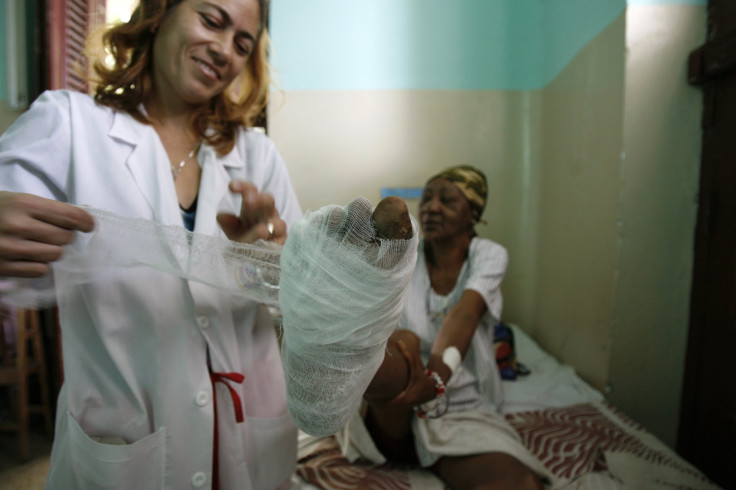Australian scientists find deadly, cancer-causing parasitic worm speeds chronic-wound healing

Scientists describe it as “short, ugly and deadly,” but researchers in Australia have found that the Opisthorchis viverrini, a cancer-causing, parasitic worm, can “supercharge” recovery from chronic wounds.
The parasite kills tens of thousands of people each year, but it could now be used to develop a vaccine for its induced cancer.
Scientists said the infection from the worm, commonly known as the “Southeast Asian liver fluke,” can be acquired when people eat raw or uncooked fish. However the new discovery, published in the journal PLOS Pathogens, shows that the deadly worm can also provide a positive effect to humans.
The Opisthorchis viverrini has been found to secrete a growth factor that can drive wound healing and blood vessel growth, according to researchers from James Cook University at the Australian Institute of Tropical Health and Medicine, or AITHM. The growth factor could potentially help to accelerate the healing of chronic wounds diabetic ulcers, and to create a vaccine for bile duct cancer, also called cholangiocarcinoma (CCA).
"Diabetes is a big problem as we live longer and get heavier," said Dr Michael Smout, a scientist at James Cook University. "There are increasing numbers of inflammatory diseases such as diabetes and associated non-healing wounds.”
“A powerful wound healing agent designed by millennia of host-parasite coevolution may accelerate the impaired healing processes that plague diabetic and elderly patients.”
The vaccine would benefit people at risk of cancer, as well as the developed world with a new wound healing agent from the growth factor.
However, utilising the ability of the worm to accelerate wound repair would increase the risk of developing liver cancer, researchers said. Millions of people in Southeast Asia suffer from infection from the worm, and about 26,000 people die each year because of the parasite-induced bile duct cancer.
Smout noted that the development of the healing agent or cancer vaccine will take a number of years, and scientists are still trying to understand how the growth factor controls healing.
Contact the writer at feedback@ibtimes.com.au or tell us what you think below





















